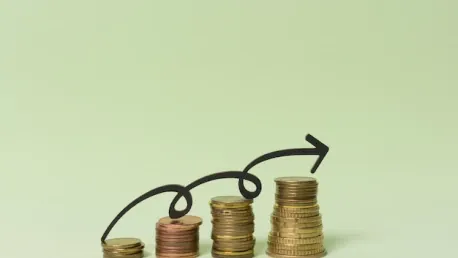The global economic framework finds itself at a critical juncture as the limitations of traditional GDP-oriented growth models become increasingly apparent. Issues such as wealth inequality, environmental degradation, and geopolitical tensions have underscored the unsustainable nature of continuous economic expansion. This growing awareness has fostered a need to rethink global economic policies, aiming to prioritize both human well-being and the planet’s health. As these challenges come to the fore, the question arises: can the global economy successfully transition from a pursuit of GDP growth to sustainable development?
The Flaws of GDP-Oriented Growth
The longstanding emphasis on GDP growth has been instrumental in widening the wealth gap worldwide. A significant portion of billionaire wealth, as pointed out by Oxfam, originates from inheritance, cronyism, and monopolistic practices rather than earned income. This reveals profound systemic inequities that have become increasingly difficult to ignore. Such disparities not only threaten social cohesion but also undermine the foundations of fair economic systems.
Moreover, the relentless pursuit of higher GDP figures has contributed significantly to the climate crisis. Continuous economic expansion often disregards environmental costs, prioritizing industrial growth and exploitation of natural resources. This approach neglects critical facets such as social stability, ecological health, and long-term planetary well-being. As the detrimental impact of such policies becomes more evident, the urgent need for a paradigm shift towards sustainability cannot be overstated.
Innovative Economic Models
In contrast to the traditional focus on economic growth, New Zealand’s ‘wellbeing budget’ presents a pioneering alternative. This approach centers on holistic well-being, placing human and environmental health at the forefront rather than sidelining them for economic expansion. By reevaluating what constitutes true progress, this model challenges established economic paradigms and advocates for a more balanced, sustainable path forward.
The UK’s internal economic strategies also highlight the potential for adopting more sustainable practices. Despite facing political challenges, the country’s strong academic and civil society sectors offer a foundation for developing and promoting new economic models with an emphasis on sustainability. Leveraging this expertise can help transition towards policies that not only foster economic growth but also ensure social equity and environmental health.
Addressing Global Inequality
The staggering external debts of low- and lower-middle-income countries, which total nearly US$ 1.45 trillion, illustrate the financial burdens that hinder these nations’ development. Such debts not only divert essential resources towards repayments but also force countries to prioritize these repayments over critical public services like healthcare. This perpetuates cycles of poverty and leaves vulnerable populations in a precarious position.
Proposals such as the Jubilee Year for debt forgiveness offer potential solutions to alleviate the financial strain on these nations. Addressing historical debts related to climate change, colonialism, and slavery is also imperative in creating a more equitable international economic system. These steps can provide a much-needed reprieve for developing countries, enabling them to allocate resources towards sustainable development and improved quality of life for their citizens.
The Role of Businesses in Economic Transformation
Businesses hold a pivotal role in the transformation towards more sustainable economic models. Moving beyond the narrow focus on maximizing shareholder profits, businesses are increasingly called upon to embrace social and environmental responsibilities. While some companies have rolled back their climate commitments, others persist in championing sustainable practices, illustrating the growing recognition of corporate social responsibility.
The rise of alternative business structures, such as employee ownership models, signifies a shift towards more equitable practices. However, widespread adoption of these models necessitates mandatory regulations, rather than relying solely on voluntary commitments. Enforcing such regulations can ensure a level playing field where both people and the planet benefit. By taking proactive measures, businesses can play a significant role in driving systemic change and fostering a sustainable global economy.
Opportunities in International Development
The current geopolitical landscape presents unique opportunities for significant advancements in international development. With South Africa chairing the G20 this year and the UK set to assume the role in 2027, there are prospects for substantial global efforts towards debt relief and systemic economic reforms. These strategic positions can be leveraged to promote tax conventions and reforms of multilateral institutions, addressing critical issues that hinder global economic progress.
Cross-sector collaboration remains crucial in mobilizing movements that challenge entrenched economic interests. By combining efforts across different sectors, the likelihood of implementing sustainable and equitable economic policies on a global scale is significantly enhanced. Such collaborative approaches can provide the impetus needed to drive transformational changes and address the pressing issues within the global economy.
Critical Questions for Progress
The global economic framework is at a pivotal moment as the drawbacks of traditional GDP-focused growth models become increasingly clear. Issues like wealth inequality, environmental damage, and geopolitical tensions highlight the unsustainable nature of relentless economic expansion. This growing recognition has sparked a desire to rethink global economic strategies, with a focus on enhancing human well-being and protecting the planet. As these pressing challenges arise, the critical question is whether the global economy can shift from a single-minded pursuit of GDP growth to a model based on sustainable development. Can we balance economic progress with the need for social equity and environmental preservation? It’s an urgent priority to redefine our economic goals in a way that ensures a healthier, more resilient world. If we are to address these issues effectively, it is imperative to adopt innovative policies that go beyond mere economic indicators, aiming for comprehensive prosperity.









